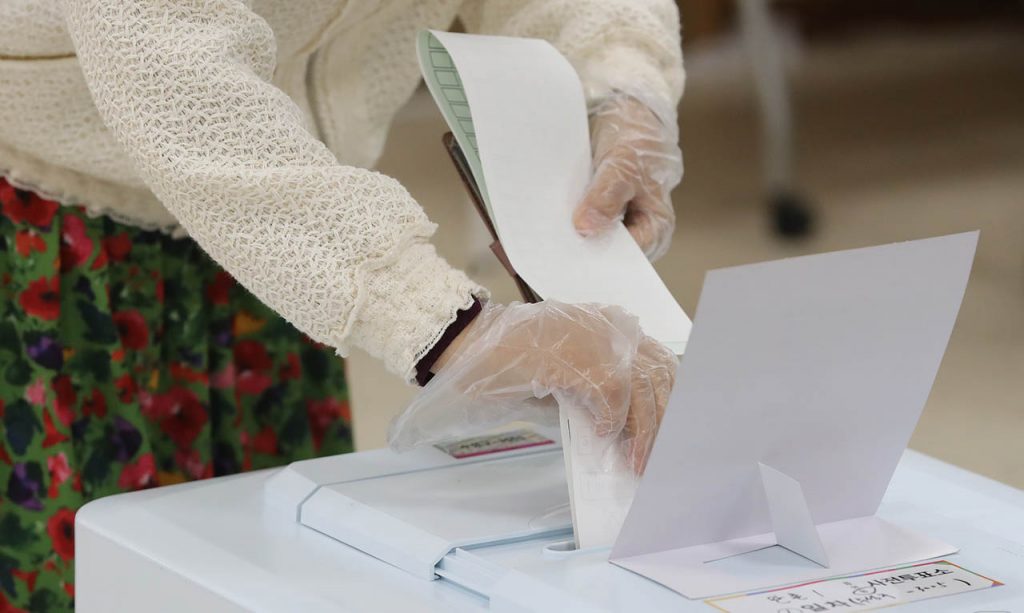South Korean voters began casting ballots on Wednesday in parliamentary elections that are seen as a referendum on President Moon Jae-in amid the country’s fight against the new coronavirus.
Voting kicked off at 6 a.m. and was to run until 6 p.m. at 14,330 polling stations across the nation, according to the National Election Commission (NEC). The number of eligible voters is 44 million.
South Korea holds the quadrennial parliamentary elections to fill the 300-seat unicameral National Assembly ― with 253 directly elected seats and 47 proportional representation (PR) slots.
The country has gone ahead with the elections as its massive and rapid testing and quarantine efforts have slowed the spread of COVID-19.
South Korea saw new daily cases of the virus dip to around 30 recently, bringing the nations’ total to 10,564.
Voter turnout in early voting that ran Friday and Saturday reached a record 26.69 percent, the NEC said. People apparently opted to cast ballots in advance to avoid crowds over infection concerns.
A higher-than-expected turnout for the advance voting has drawn attention to whether turnout for Wednesday’s elections could surpass 60 percent. Voter turnout in the 2016 general elections came in at 58 percent.
The ruling Democratic Party (DP) is widely expected to win the elections as the government’s response to the outbreak has gained a positive assessment.
The liberal Moon government and the governing party had suffered falls in their public approval ratings, hit by a prolonged economic slowdown and a political scandal involving former Justice Minister Cho Kuk.
But the government’s handling of the COVID-19 crisis has apparently changed public sentiment, illustrated in recent polls in which Moon’s approval rating shot up to over 50 percent. The DP is targeting at least 147 seats in the elections.
Meanwhile, the main opposition United Future Party (UFP) has called on its conservative supporters and swing voters to support it to keep the ruling party in check.
The UFP has stressed the need to “judge” the government, citing what it called policy failures to prop up the economy. The party is eyeing at least 125 seats.
The NEC has prioritized bolstering voter safety at polling stations to prevent people from being exposed to the risk of infection.
Voters wearing face masks should have their temperatures checked at the entrance. They should also disinfect their hands with sanitizers and put on plastic gloves before casting ballots. To keep social distancing rules, voters are advised to stand at least 1 meter apart from others.
The government has decided to temporarily lift quarantine rules to permit self-isolators to vote in Wednesday’s elections.
Only people in self-isolation who have no symptoms and expressed a willingness to vote will be allowed to cast ballots after the regular voting ends at 6 p.m. The number of self-isolators is some 50,000. (Yonhap)
